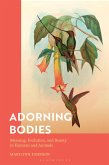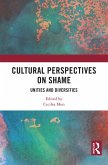How is meaning in our bodies constructed? To what extent is meaning in bodies innate, evolved through biological adaptations? To what extent is meaning in bodies culturally constructed? Does it change when we adorn ourselves in dress? In Adorning Bodies, Marilynn Johnson draws on evolutionary theory and philosophy in order to think about art, beauty, and aesthetics.
Considering meaning in bodies and bodily adornment, she explores how the ways we use our bodies are similar to - yet at other times different from - animals. Johnson engages with the work of evolutionary theorists, philosophers of language, and cultural theorists - Charles Darwin, H. P. Grice, and Roland Barthes respectively - to examine both natural and non-natural meanings. She addresses how both systems of meaning signify relevant information to other humans, with respect to both bodies and clothes. Johnson also demonstrates that how we dress could negatively influence the way our bodies can be read, and how some humans and animals use their bodies to deceive.
Considering meaning in bodies and bodily adornment, she explores how the ways we use our bodies are similar to - yet at other times different from - animals. Johnson engages with the work of evolutionary theorists, philosophers of language, and cultural theorists - Charles Darwin, H. P. Grice, and Roland Barthes respectively - to examine both natural and non-natural meanings. She addresses how both systems of meaning signify relevant information to other humans, with respect to both bodies and clothes. Johnson also demonstrates that how we dress could negatively influence the way our bodies can be read, and how some humans and animals use their bodies to deceive.









